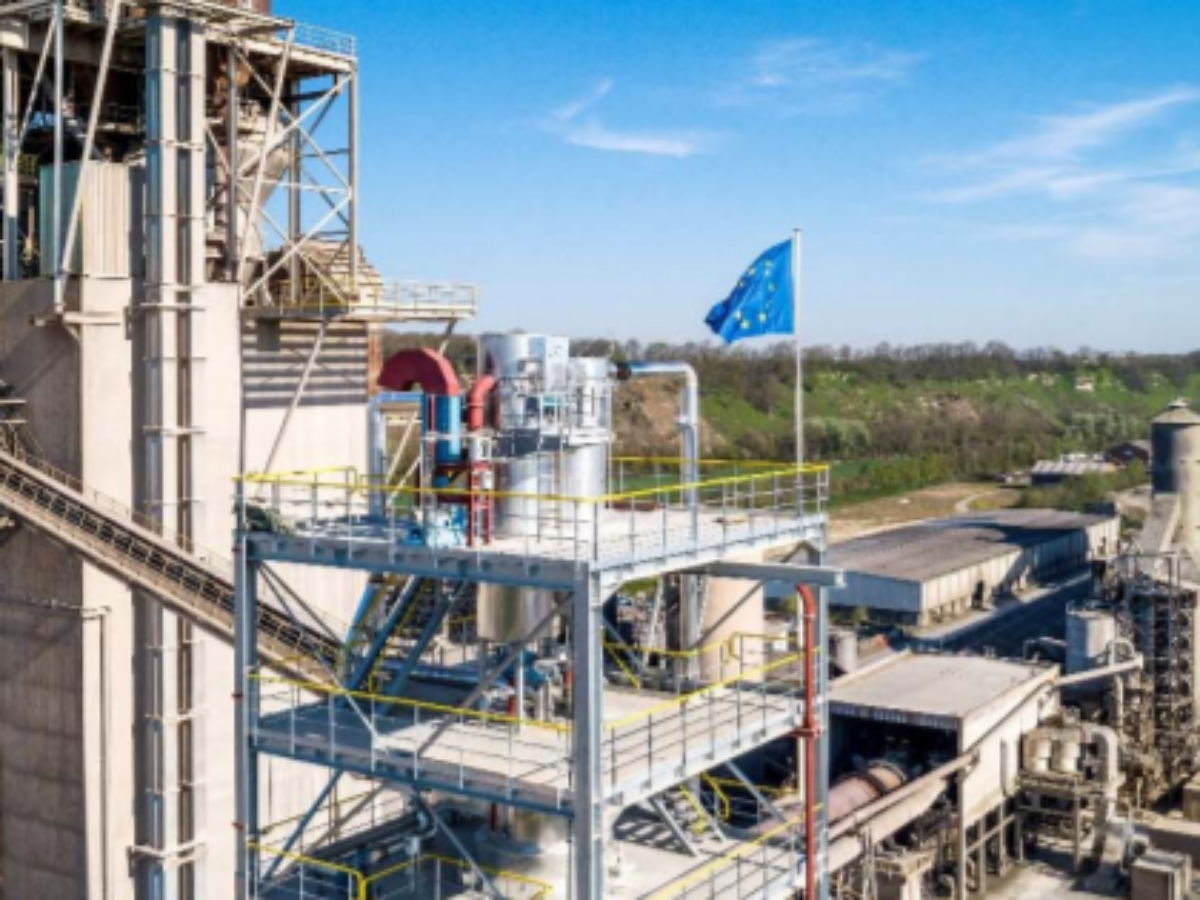Calix – another firm getting election-time grants for numerous of its projects

By Peter Roberts
When the dust settles on this federal election someone had better do a stocktake of the hundreds of grants that have been sprayed around the manufacturing sector – public money shovelled out the door at a rate never before seen – all with no transparency, little process and no accountability whatsoever.
The total dollar amount is going to be shock, but so will be the total given to individual companies for numerous projects such as today's example of Calix Ltd and its LEILAC (Low Emissions Intensity Lime and Cement) process.
Again this is one of @AuManufacturing's favourite companies with us publishing dozens of stories on its ground-breaking technology to produce low-emission cement and lime – you can see the stories here.
It is a fabulous technology – a new type of kiln which can be heated from the outside rather than internally, allowing internal process gases to be easily captured – and one that is essential if we are ever going to decarbonise our economy.
But this week has seen Calix awarded three separate federal grants for three different projects aiming to prove Calix technologies in industry.
Today (19 May), Calix was awarded an $11 million grant from the government's Carbon Capture Use and Storage (CCUS) Hubs and Technologies Program to develop the world's first commercial-scale process for the manufacture of low emissions lime in partnership with building materials group Adbri (formerly Adelaide Brighton).
They will develop a low emissions kiln at Kwinana to supply the alumina and gold sector, with CO2 supplied to the state's South West Hub CCS project.
Two days ago (17 May), Calix received a $20 million Modern Manufacturing Initiative grant – manufacturing Translation Stream along with Pilbara Minerals to demonstrate the production of lithium salts via an innovative mid-stream value-added refining process.
The companies plan a small-scale demonstration plant to prove the technology which should enable treatment of very fine spodumene concentrates at lower lithia grades which have traditionally been problematic in conventional direct-fired horizontal rotary calciners.
While three days ago (16 May), Calix and building materials group Boral were awarded $30 million from the CCUS Hubs and Technologies Program for a carbon abatement project.
The companies will receive $30 million to develop the project at Boral's cement and lime facilities in the southern NSW highlands, targeting 100,000 tonnes a year of CO2 capture.
Oh and before I forget, also today (May 19), Calix confirmed the receipt of $5.19 million for the R&D tax incentive claim for the 2020/2021 financial year.
The R&D funds are of course come from a well known and well understood scheme, dispensed with rigour.
But the total does come to $66.19 million in a single week – not a bad effort and a great result for Calix.
I wouldn't argue with Calix as a recipient or any of these projects as worthy – but then I am no expert at the technology.
It is just they and the daily blizzard of announcements of grants – far too many for any news outlet to report – does suggest a certain profligate approach to dispensing government funds.
And were they as seems normal nowadays decided inside a ministerial office?
I would certainly be far more comfortable if the public could hope for a return on some off these grants, surely in the hundreds of millions, though loans or a share of the upside should these technologies become successful.
Whatever the outcome of the election, there should be some audit of what has gone down.
See also: Carbon Revolution grant shows the absurdity in Canberra's daily cash giveaways
Picture: Calix/European LEILAC (Low Emissions Intensity Lime and Cement) project
Subscribe to our free @AuManufacturing newsletter here.
Topics Manufacturing News
@aumanufacturing Sections
Analysis and Commentary Awards casino reviews Defence Gambling Manufacturing News Online Casino Podcast Technology Videos

